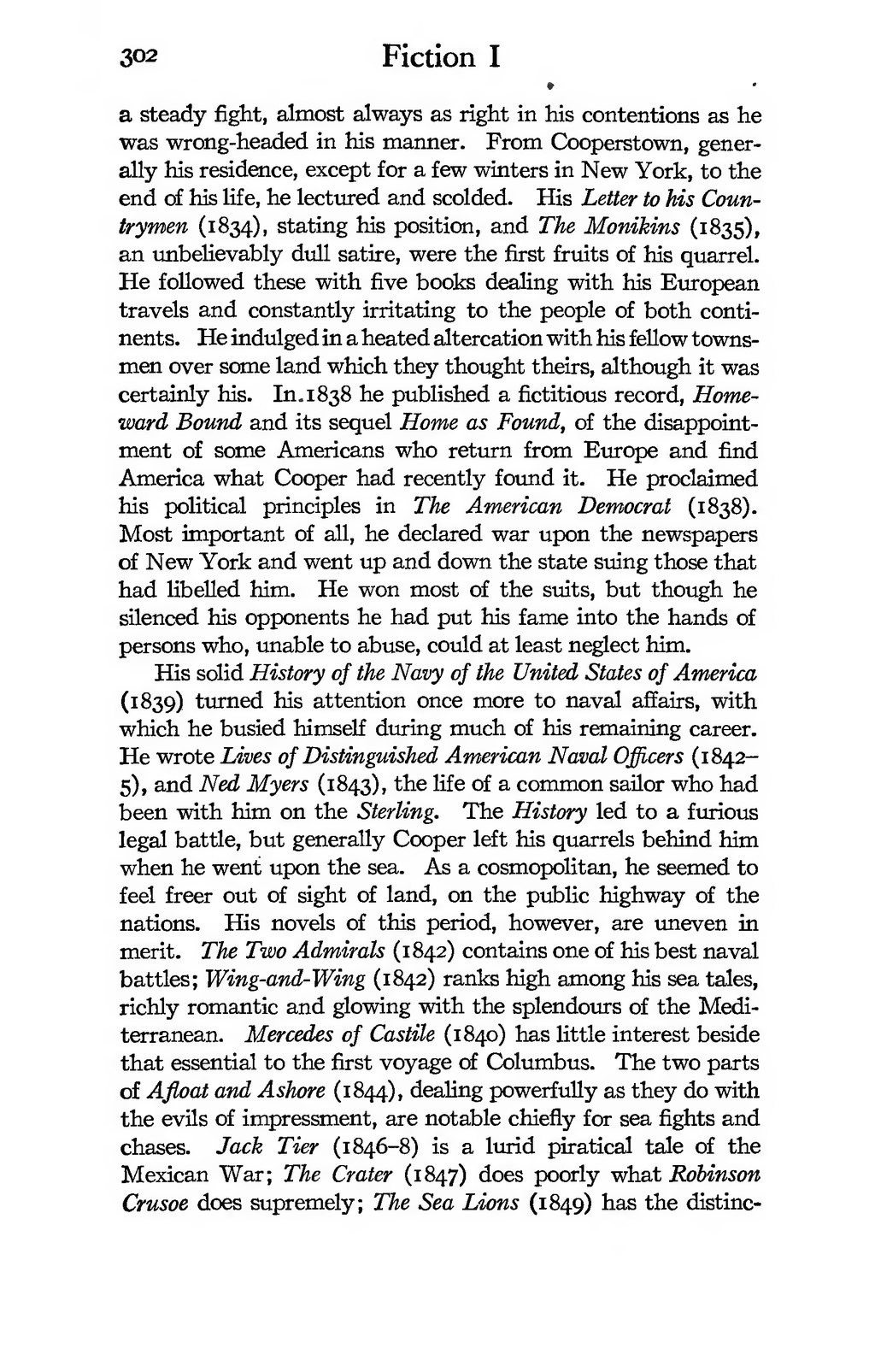a steady fight, almost always as right in his contentions as he was wrong-headed in his manner. From Cooperstown, generally his residence, except for a few winters in New York, to the end of his life, he lectured and scolded. His Letter to his Countrymen (1834), stating his position, and The Monikins (1835), an unbelievably dull satire, were the first fruits of his quarrel. He followed these with five books dealing with his European travels and constantly irritating to the people of both continents. He indulged in a heated altercation with his fellow townsmen over some land which they thought theirs, although it was certainly his. In 1838 he published a fictitious record, Homeward Bound and its sequel Home as Found, of the disappointment of some Americans who return from Europe and find America what Cooper had recently found it. He proclaimed his political principles in The American Democrat (1838). Most important of all, he declared war upon the newspapers of New York and went up and down the state suing those that had libelled him. He won most of the suits, but though he silenced his opponents he had put his fame into the hands of persons who, unable to abuse, could at least neglect him.
His solid History of the Navy of the United States of America (1839) turned his attention once more to naval affairs, with which he busied himself during much of his remaining career. He wrote Lives of Distinguished American Naval Officers (1842-5), and Ned Myers (1843), the life of a common sailor who had been with him on the Sterling. The History led to a furious legal battle, but generally Cooper left his quarrels behind him when he went upon the sea. As a cosmopolitan, he seemed to feel freer out of sight of land, on the public highway of the nations. His novels of this period, however, are uneven in merit. The Two Admirals (1842) contains one of his best naval battles; Wing-and-Wing (1842) ranks high among his sea tales, richly romantic and glowing with the splendours of the Mediterranean. Mercedes of Castile (1840) has little interest beside that essential to the first voyage of Columbus. The two parts of Afloat and Ashore (1844), dealing powerfully as they do with the evils of impressment, are notable chiefly for sea fights and chases. Jack Tier (1846-8) is a lurid piratical tale of the Mexican War; The Crater (1847) does poorly what Robinson Crusoe does supremely; The Sea Lions (1849) has the distinc-
